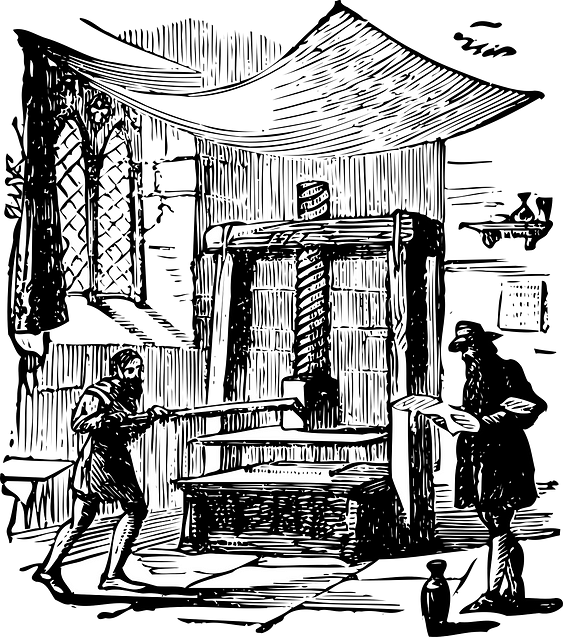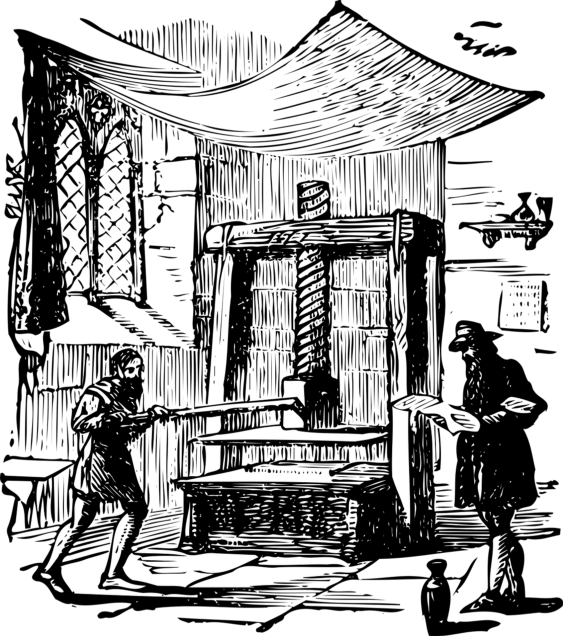Quest for a new humanitarian narrative
The world needs a new narrative. This a short burst of thoughts, a call for a new project to find a new cookbook, a narrative, for modern societies to function and develop further. The materialistic world-view is harming us and so seems our reliance on conventional economists. In public discussion other areas shine in absence and facts of science are being dismissed while it is becoming apparent that abundance in material can only bring us so far.
 Forging stories.
Forging stories.
Societal discussion should take a step back to form demands that are other than purely materialistic. The lack of evidence-based non-materialistic arguments to counter totalitarian ideas which mostly cling on some form of nostalgic utopia is causing immense pressure in democratic systems of the west. And this frustration is met with arrogance and ignorance of the inequality among people. A typical way of hiding is the use elitist economic arguments, a good one being the supposed benefits of globalisation for human development.
One of the issues with the economic regime is that it misses some essential aspects of what is actually going on in the world, the altruism and kindness around us and the complexity of interactions. Economic development has not been enough to solve our issues, is not bringing benefits to everyone in a way that could be justified and is leading to an ecological disaster. However, I do not believe this can be in any way solved by relying on some tribalist ideas of transforming the society to some kind of an utopia. We need to face the facts and rely on the power of humanitarian values of equality of opportunity and minimising unnecessary suffering, things most of us can root for.
I am not arguing that economic or material aspects are in any way irrelevant, for most people they continue to be most important when pursuing for happiness and equal opportunities. However, they might be *over-emphasised, *a failure potentially by other disciplines to communicate and influence. Economic evidence-based decision-making has led to developments which have unarguably been good for many people. But, it is also wrong to assume that the perspective of looking at our mutual interactions in societies through economists’ eyes should be the *only *eyes worth using, or even the most significant ones.
We could start the change by constructing plausible demands for societies to address our major concerns, following Popper’s technologist approach. Instead of asking for democracy to fix our problems or waiting for some miraculous overwhelming set of policies we can issue demands on the institutions and take a “piecemeal” approach to changing them, through compromise and discussion, as Popper outlined. Anti-humanitarian forces are doing just that while the people holding sound alternatives, “the silent majority” as they call it in my home country Finland, is contempt with trusting institutions themselves to keep things as they were without real need to meddle. But institutions just won’t do the job, that is a key feature of democracy. There needs to be alternatives to present in the public space and I believe old parties are failing in that regard.
As a partial solution, I suggest philosophy could make a come-back into politics to start discussing the ideas of what people want. A rigorous philosophical debate in societies would expose the hollowness of totalitarians, its incapability to actually solve anything, something we should have already learned. Alternative solutions can be formulated based on humanitarian, liberal principles with faith in individuals and human interaction, without forgetting the use of evidence and knowledge humanity has and continues to gain as guidance. However, the cookbook for realising this needs an update, and the update will not come without an open and bold discussion.
There was the prompt, a burst of thoughts and ideas. So, what do you think are the key components of such a new cookbook or narrative? Could we get something practical going or a vision formulated? If so, just comment or message me and let’s get it started!
To fellow practitioners,
Eramismus
This post was originally published in Medium
I am a practical Finn with interests spanning energy, digitalisation and society. I am currently working towards a PhD in England. Among other things I try to explore the layered nature of sustainability through philosophy and technology.

